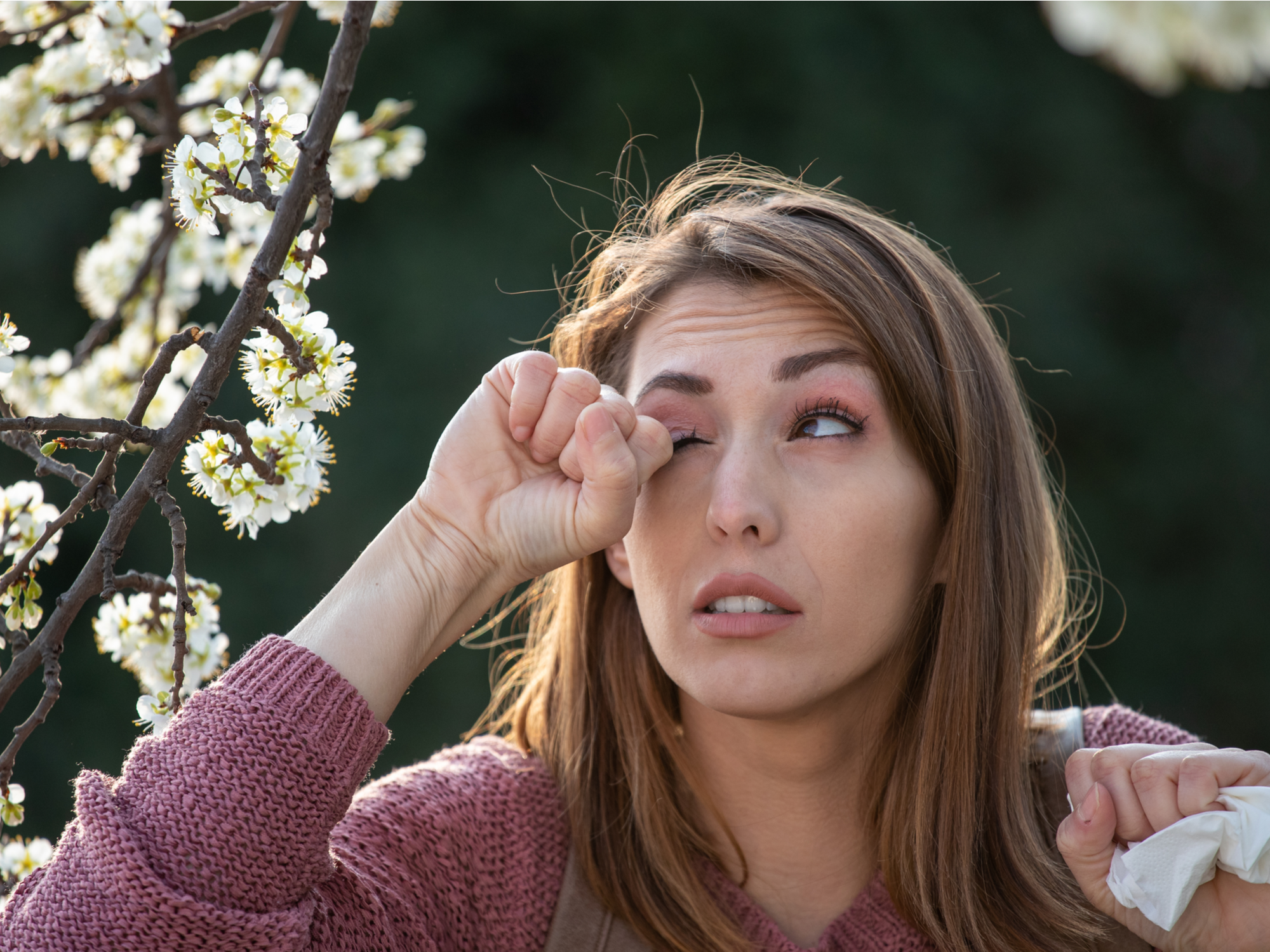
Itchiness and irritation are common symptoms of dry eyes and allergies. It can be difficult to know the difference if you have never experienced symptoms before. About five million people in the United States experience dry eye. Around 50 million people experience dry eye. There are many overlapping symptoms, but it is important to know the differences.
What Is Dry Eye?
Dry eye disease occurs when the eye does not make enough tears to lubricate the eye. It can also occur when the eyelid glands malfunction. Three layers of fluid keep the eyes lubricated. It can cause issues if the oil component does not produce enough moisture. Dry eye is most likely to occur after the age of 50.
What Are Seasonal Allergies?
For many, the onset of spring means stuffy noses and itchy eyes. Seasonal allergies, also known as hay fever and allergic rhinitis, can be very uncomfortable. The blooming of flowers and trees means more pollen entering the eyes, mouth, and nose. Scientists are not sure why the body has this reaction to pollen. Likely, the body mistakes pollen for a harmful substance.
What Are the Symptoms of Dry Eye?
People with dry eyes usually experience stinging or burning in the eye. They can also experience the feeling of having something in your eye. Sensitivity to light and difficulty driving at night are common as well. The irritation and inflammation can also cause a scratchy feeling. You may also experience eye fatigue.
What Are the Symptoms of Seasonal Allergies?
Seasonal allergies cause symptoms similar to dry eyes but there is a difference. Unlike dry eyes, seasonal allergies more often cause itchiness. Your eyes can tear up, which is quite the opposite problem of dry eye. Seasonal allergies also cause swollen eyelids and a burning sensation. Like dry eyes, seasonal allergies can also make you feel like there is something in your eye.
How Do You Know Which Is Which?
First, you should find out if you have a family history of allergies. You should think about which situations trigger symptoms. For instance, if you experience eye-burning on a windy day, you could have dry eyes. If you experience eye watering on a windy day, you may have seasonal allergies. You should talk to your doctor about the most likely cause of your symptoms.
How Do You Treat Seasonal Allergies and Dry Eye?
Humidifiers are helpful for both seasonal allergies and dry eyes. If you are experiencing symptoms, keep your window closed to prevent further irritation. Wear sunglasses outside to prevent wind or pollen from entering your eyes. Treatment for seasonal allergies often consists of an antihistamine. Your doctor may prescribe prescription eye drops for dry eyes. The treatment varies between the two conditions. You will need to design a plan that's best for you, so visit your optometrist to discuss options.
To make an appointment today, call Advanced Eyecare Consultants at 847-994-4500 or 847-438-7700. You can also visit our offices in Libertyville or Lake Zurich, Illinois.








